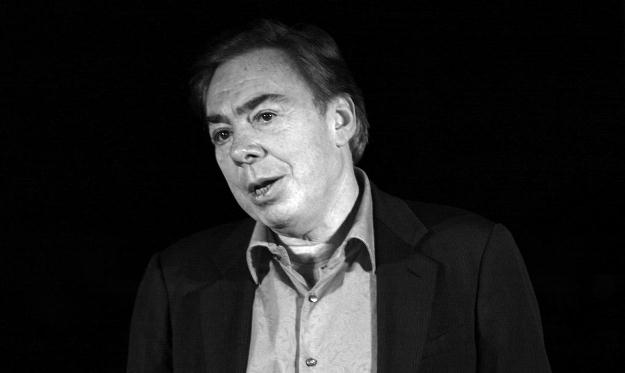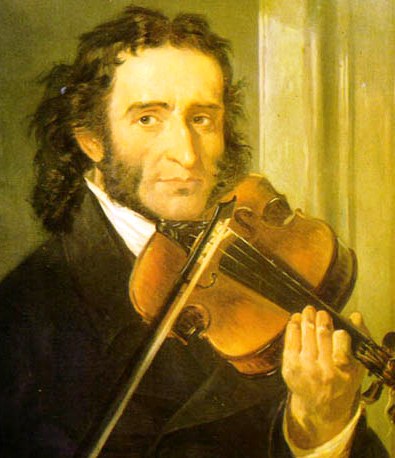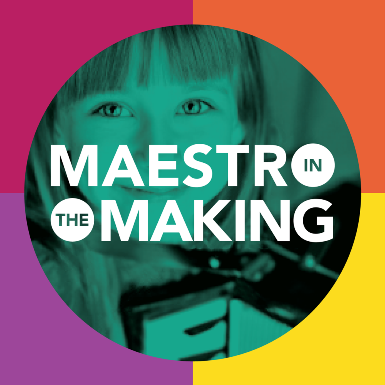| |
22 Jul 2013
Andrew Lloyd Webber is considered to be one of the most successful contemporary composers. The creator of the famous musicals “Jesus Christ Superstar”, “Evita”, “Cats”, “The Phantom of the Opera”, is the winner of three “Tony” awards, as well as an “Oscar”, a “Golden Globe” and many other awards. Here are a few interesting facts from his biography and creative activity.

Photo by Tracey Nolan (Toronto, Canada). Source: Wikipedia.
- As it often happens in the lives of great composers, Andrew grew up in a family of professional musicians. No wonder that he began composing music at the age of 6 and published his first suite when he was 9.
- The composer was three times nominated for an “Oscar”, including the nominations of the musical “Jesus Christ Superstar” and the song “Learn to Be Lonely” for the movie “The Phantom of the Opera” (2004). However, lady luck smiled at him only once: in 1996 the composer received an “Oscar” for the song “You Must Love Me” from the musical “Evita”.
- On the basis of that musical a movie of the same name was filmed, starring Madonna and Antonio Banderas. One of the most popular songs from the movie is “Don’t Cry for Me Argentina” written in 1976. According to the composer, if this song hadn’t been written there would be no musical.
- In 2005, Lloyd Webber took part in the Eurovision Song Contest, having become the organizer of this national Song Contest. His song “It’s My Time” performed by Jade Yuan became number 5 at the ESC in Russia. The author himself was on stage accompanying the singer on the piano.
- Andrew Lloyd Webber reached success not only in the sphere of pop music but also in the genre of classical music. His “Requiem” dedicated to the composer’s father received a “Grammy” in the nomination “best contemporary classical composition”. The recordings of the famous motet “Pie Jesu” performed by Anna Netrebko, Sissel Kyrkjebø and Jackie Evancho are gathering millions of YouTube views.
- Especially for his brother Julian, a professional cellist, the composer created a “cross-over” album. The album is based on variations of the theme of the A minor Caprice by Paganini.
- A. Lloyd Webber was a couple of times accused of plagiarism, including the accusations from the Dutch composer and music theorist Louis Andriessen.
- In 1992, A. Lloyd Webber was knighted by the Queen of Great Britain, and a few years later he received the “baron” title.
- The famous musician was married three times, including the marriage with Sarah Brightman for whom he created the role of Christina in the musical “The Phantom of the Opera”. Andrew has five children.
- According to some estimates, Andrew Lloyd Webber occupies the 87th place in the list of the richest people of Great Britain. His fortune is estimated at 700 million pounds.
- The 10 000th performance of the musical “The Phantom of the Opera” took place on Broadway on the February 11, 2012.
Among the numerous facts about A.Lloyd Webber, we should also mention his unique melodic gift – a rare phenomenon today. Probably this is the secret for the popularity of the well-known compositions “I Only Want to Say”, “Amigos Para Siempre”, “Memory”, “The Phantom of the Opera”, “Pie Jesu”. In the sheet music catalogue of MusicaNeo you will find over 500 music scores of the works by Andrew Lloyd Webber in various arrangements.
06 Jul 2013
 What differentiates a ‘musician’ from other professions? Most musicians will probably answer without hesitation: a course of studies that may last more than 15 years. Even after graduating from a university and receiving a degree, a musician has to dedicate a few hours every day to practicing. And it is not only about playing a music instrument but about the need to extend personal horizons in the spheres of music, art, technologies and music industry in general. What differentiates a ‘musician’ from other professions? Most musicians will probably answer without hesitation: a course of studies that may last more than 15 years. Even after graduating from a university and receiving a degree, a musician has to dedicate a few hours every day to practicing. And it is not only about playing a music instrument but about the need to extend personal horizons in the spheres of music, art, technologies and music industry in general.
Luckily, today there are a lot of opportunities to obtain the necessary information. One of such opportunities is the initiative of a group of universities aimed at making music education free and accessible to as many people as possible. Within this initiative, the universities have prepared a number of online courses that allow the necessary knowledge from various spheres of music art to be learned within a short period of time. The courses are available in English. To participate, one needs an Internet-connected computer and, of course, dedication and spare time.
The world-known Berklee College of Music is among the educational establishments supporting this idea. (By the way, some of the modern show-biz stars who graduated from Berklee include Alan Silvestri, Diana Krall, Al Di Meola and PSY, whose video “Gangnam Style” was the first to receive over 1 000 000 000 YouTube views). Among the up-coming online courses from Berklee are “Songwriting” and “Introduction to Music Production”. College teachers will prepare a set of video-lectures and quizzes and will reply to all the questions that interest you. Participants have the opportunity to create music works and receive gradings.
The University of Rochester organizes an online course “History of Rock, Part Two”. This is the second part of the same-named course, which focuses on the period 1970 – end of the last century. The course consists of 8-12-minute video-lectures, tests and a final exam. Participants who have successfully completed the course will receive a confirmation certificate signed by a professor.
August will see a course prepared by the University of North Carolina, dedicated to organizing rehearsals for a music ensemble – “Fundamentals of Rehearsing Music Ensembles”. Among the topics planned: choice of repertoire, studying and analyzing music pieces, rehearsals planning, developing a musical ear, ensemble guiding, musicians’ coordination.
Those who are interested in applying modern technologies in music should turn their attention to the topics of “Music Technology Overview” (Georgia Institute of Technology) and “Introduction to Programming for Musicians and Digital Artists” (California Institute of the Arts). The latter is interesting as it is using the programming language ChucK created in 2003. Among its features are the possibility of music synthesis and real-time device managing. The video-lectures will involve material from the language creator Dr. Perry R. Cook (Princeton University) and Dr. Ge Wang (Stanford University).
At the beginning of September, one of the most prestigious USA conservatories – Curtis Institute of Music – invites you to take part in the course “Exploring Beethoven’s Piano Sonatas”. In its course, 32 sonatas by the great composer will be analyzed from the point of view of performer. The course’s creators are inviting everyone who is interested in Beethoven’s music, regardless of the educational level.
As a conclusion to this overview, we’d like to add that all the courses are FREE and are organized by the portal coursera.org.
21 Jun 2013
 There are things that are affected by neither twists nor turns of history nor the constant changes in the public opinion. One of such phenomena is the human mentality and a way of thinking which is usually described as ‘genius’. This amazing gift can be observed in different spheres of human activity. There are things that are affected by neither twists nor turns of history nor the constant changes in the public opinion. One of such phenomena is the human mentality and a way of thinking which is usually described as ‘genius’. This amazing gift can be observed in different spheres of human activity.
In the world of classical music, the most widespread benchmark for music genius and a high level of professionalism when comparing this or that musician is the great violinist of the past – Nicolo Paganini. The name of the outstanding Italian virtuoso has already become a common noun. Today, even those who are not professionally connected with music use “Paganini” for an extremely gifted musician.
One of the important features of the genius is considered uniqueness. Was Paganini a real man of genius? “Undoubtedly!” – his contemporaries would say. Moreover, people used to ascribe to him supernatural, even demonic abilities. Many music works by Paganini, especially his famous Caprices and Violin Concertos, remain a certain mastery standard for modern composers and an ‘internal Mount Everest’ to conquer if you want to become an exceptional violinist. But on the other hand, even the most advanced pieces by Paganini can be heard today performed by musicians at various concerts, which reduces the ‘uniqueness’ factor to nothing. Does this mean that Paganini’s reputation is wildly exaggerated?
It goes without saying that for his time Paganini really was a unique musician – the first one able to perform the technically difficult passages that his violin pieces almost burst of. There are a number of research works dedicated to the so-called “Secret of Paganini” – the phenomenon that allowed him to achieve such a success at his time. There is a hypothesis according to which Nicolo Paganini was suffering from a disease that influenced his exceptional abilities. But we prefer the attempts based on the discoveries in the modern neurophysiology.
According to this hypothesis, the “Secret of Paganini” is in the human mental ability to store and extract information, in other words, in the mechanisms of ‘coding’ the remembered information. In our brain, data is processed, compressed and then placed in various sections of our memory. To recollect something – or to extract the saved information – we need a ‘code of access’, an associative element that can be compared to the end of a thread: you pull it, you roll open the memory. For a musician, the difficulty of performing technically complicated elements lies, first of all, in the speed at which he/she has to extract from the memory the necessary material and to coordinate the movements of both hands. All that is done unconsciously, of course. At such a moment, one could compare the musician’s state with that of a juggler who has to play with a few fragile items simultaneously.
Complex educational systems have been created to help any-level musicians develop a brilliant performing technique – to master the “Secret of Paganini”. Some methods are, for example, based on the step-by-step transformation of the conscious movements into automatized ones, on the gradual enlargement of the piece’s structure in a musician’s mind, etc. However, to develop such skills is still one of the most challenging tasks for a musician.
Perhaps Paganini managed to form a knowledge system that allowed him to effectively organize the process of compressing and extracting the information and to develop an ability to “slow down the time”. These discoveries gave him an opportunity to increase significantly the speed of movements and, as a result, to develop an unusual performing technique unknown before. Certain facts can serve as proof for this hypothesis: Paganini could go without practicing for a long time; instead, he preferred practicing during trips using only his left hand, which means that the real work on a music piece was performed in his brain.
The genius of a great violinist is in the discovery of the mental patterns, which let Paganini be ahead of time and raise the performing mastery to a level not yet reachable for his contemporaries. Still, this theory is just an attempt to find a rational explanation for the human’s uniqueness. The true answer to the question “What is the Secret of Paganini?” will most probably remain out of your reach of understanding.
VIDEO: N. Paganini. Violin Caprices No.11 and No.24 performed by the laureate of the international competitions Artem Shishkov.
16 May 2013
If we wish to create a lasting peace we must begin with the children.
Mahatma Gandhi
 MusicaNeo is launching a new project “Maestro-in-the-Making” aimed at supporting children’s music education worldwide. Within the project a contest among contemporary composers will be hold – its main aim is creating unique music pieces for the beginning musicians. We hope that the project will encourage modern composers for writing new interesting works developing kids’ music abilities and favoring their creative communication with the peers (more details about the contest will be published in the further blog posts). In case of successful fund-raising, the best works of the competition will be published and sent out for free to music schools all over the world. Music pieces created within the project will become available at MusicaNeo. MusicaNeo is launching a new project “Maestro-in-the-Making” aimed at supporting children’s music education worldwide. Within the project a contest among contemporary composers will be hold – its main aim is creating unique music pieces for the beginning musicians. We hope that the project will encourage modern composers for writing new interesting works developing kids’ music abilities and favoring their creative communication with the peers (more details about the contest will be published in the further blog posts). In case of successful fund-raising, the best works of the competition will be published and sent out for free to music schools all over the world. Music pieces created within the project will become available at MusicaNeo.
Important: Everyone can make a contribution in support of this project at the site IndieGoGo.com. At the project’s page you will find the details about the awards for the composers’ contest winners and read about the perks for project’s supporters.
Food for Thought
Many MusicaNeo users work in music schools and would agree that modern music is rarely heard at the school concerts. The reasons for it are no secret. Teachers complain that many pieces by contemporary composers are too difficult for children’s understanding. One can’t ignore the fact that music schools experience a constant shortage of up-to-date educational literature. Without receiving a good idea of the new music in the childhood, a human can’t perceive the ‘alien’ language of modern art later on in life. Should it be surprising that too often concerts of classical music are played to half-empty halls?
But let’s leave aside the contemporary music and talk about the concerts of classical music where the famous favorite music works sound. Have you thought about the reasons why children are so rarely met among these concerts’ audience? Is it possible to find a more harmonic combination than music, creativity and a child’s soul? Nevertheless, from year to year it becomes more evident that the new generation is a ‘computer era generation’ – people for whom the world is narrowed to a computer screen and whose communicative circle is replaced by “friends” in the social networks. Why should we think about it, it seems? First of all, because at this restless time it is especially important to pay attention to what your children are doing in their spare time: do they spend hours sitting at their computers, are they wandering in the streets in a questionable company or are they involved in a creative activity developing their abilities?
MusicaNeo for children
One of MusicaNeo’s main missions is favoring the development of music education in different countries. If we want to save our children from the drug abuse and the negative influence of the street, we have to do the utmost to provide them with an opportunity for self-actualization by practicing music in a creative environment of their peers. Considering the fact that over a thousand modern authors publish their music scores at the platform, MusicaNeo is launching a new project “Maestro-in-the-Making” aimed at kindling children’s love for practicing music. We are convinced that contemporary composers have a lot to offer to the beginning musicians and we expect that our call will draw authors attracted by the idea of creating unusual music pieces that would get the kids interested and encourage them to think and create.
We are appealing to all members of the musicians’ community who are not indifferent as to what kind of world our children will live in: Please support our initiative and take part in the project. Only with your help will we be able to fulfill the mission. Share the news about the project with friends, in blogs, forums, social networks – so that as many talented authors as possible could participate in the process of creation of new music for children. We are already accepting applications from music schools to receive the sheet music book with the best works of the contest “Maestro-in-the-Making”.
We are inviting you to join and make your own contribution into modern art and education. Together we can change a lot!
|
|
|